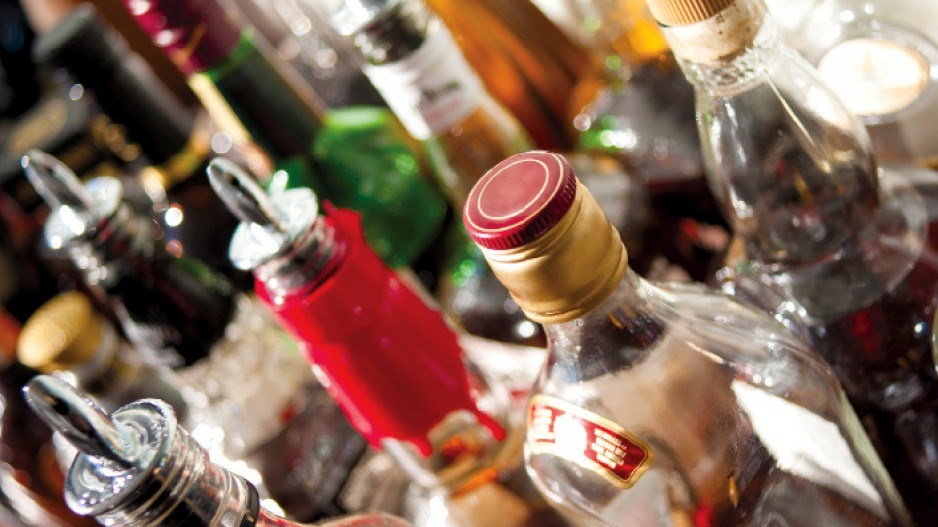The plan to find a 35-acre site for the Liquor Distribution Branch’s new warehouse is going ahead after another three-month delay.
In late-February, LDB and government privatization middleman PartnershipsBC published tendering documents seeking land and warehousing consultants. Those documents set April 15 as the tentative deadline to find a preferred new site. But a May 11 request for expressions of interest, from the government’s Real Property Division, said the end of July is now the deadline to find enough space in the Lower Mainland — as far away as Hope — to build a 750,000-square foot distribution centre near major trucking routes by September 2019.
The government wants to buy or lease, for at least 60 years, a warehousing and distribution-zoned property that is ready for construction on June 1 next year. May 30 is the deadline for bids in the two-phase procurement process.
“The overarching requirement is to provide a facility which is accessible to customers and staff as well as to provide infrastructure to support the LDB’s operations,” said the new tendering document.
The government wants enough land to someday expand the new warehouse to 1 million square feet. At that size, it would be four times bigger than the LDB’s aging 250,000 square foot East Broadway headquarters. That property sold for $37 million in 2014 to a consortium of three First Nations and the Aquilini Investment Group.
LDB has continued to lease the Broadway property but, according to a Feb. 18 briefing note to Red Tape Reduction Minister Coralee Oakes, the Crown agency was already looking to lease warehouse space elsewhere “as an interim stopgap measure to address immediate need, as the current [Vancouver Distribution Centre] is at capacity.”
That briefing note also said the government struck a project board last October, with senior bureaucrats and treasury board staff, to plan the move to a new warehouse.
The new plan comes four years after the government’s attempt to privatize LDB’s warehousing and distribution arm unravelled. Documents leaked to Business in Vancouver revealed how Excel Logistics, the Ohio-based operator of Alberta’s privatized liquor warehouse, sought to influence the writing of the request for proposals in its favour. Excel had hired Liberal-connected lobbyists Patrick Kinsella and Mark Jiles to first propose a private-public partnership. The NDP slammed the BC Liberals for the lack of business case and the privatization was eventually cancelled when the government agreed to a new contract with the B.C. Government and Service Employees Union.
LDB CEO Blain Lawson declined an interview request. A request to interview Oakes was not granted.
“This is a major, complex project which may require significant capital investment,” read a statement emailed from Bill Anderson, spokesperson for Oakes. “It is critical that the business case for this project follows due process and presents options to ensure value for the LDB’s customers, employees and for taxpayers.”
In a March 15 budget estimates hearing, NDP critic David Eby wondered why the government rushed to sell the existing warehouse in 2014, but waited until this year to look for new headquarters.
“If there’s no capital in the budget for a new warehouse, how is it that this major capital expense is going to be undertaken?” Eby asked.
Oakes said the business case would go to treasury board for approval, but denied that there is a plan to privatize the warehouse. She cited population growth, an increased consumer base and the aging warehouse among the reasons for the project.
“It is to ensure that the branch can continue to support B.C. businesses and support consumers with their choice, for British Columbia,” Oakes said. “The business plan will thoroughly examine forecasting of the future, which will, in turn, inform the requirements that support the long-term goals of the LDB.”
LDB recorded a $953.2 million profit on $2.88 billion of gross beer, wine and spirits sales for the year ended March 31, 2015. LDB buys from more than 400 domestic and foreign suppliers and manufacturers and distributes to more than 1,500 retail outlets, including 196 government-owned liquor stores.
Anderson said the government is paying lawyer Jane Shackell of Miller Thomson LLP $53,000 to monitor the procurement. Shackell had the same assignment in 2012 when the government chose SNC-Lavalin over EL Partners and Kiewit/Flatiron to build the Evergreen Line SkyTrain extension. In an early 2013 interview, Shackell said her terms of reference prevented her from mentioning the various domestic and international civil and criminal investigations into bribery allegations against SNC-Lavalin.




